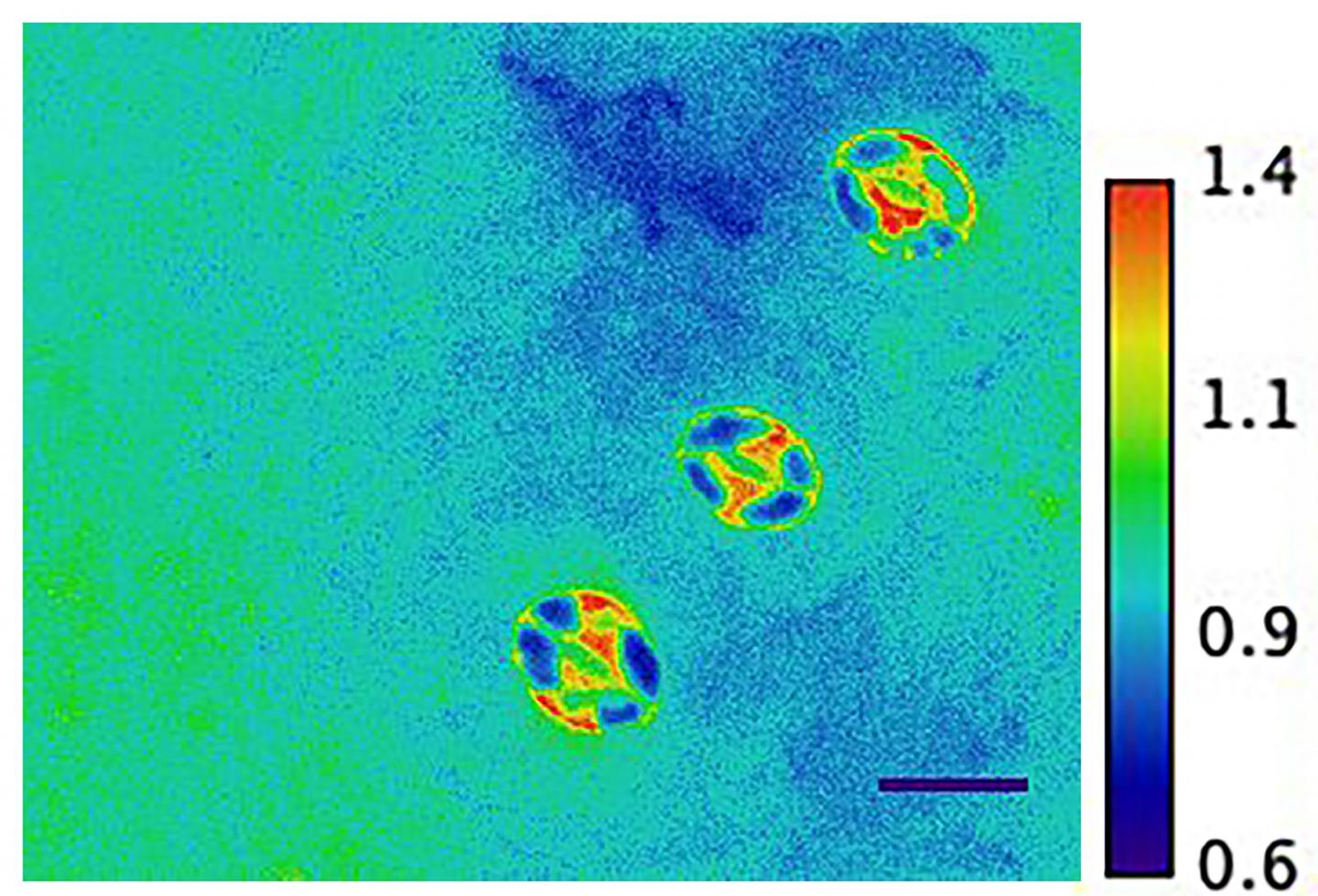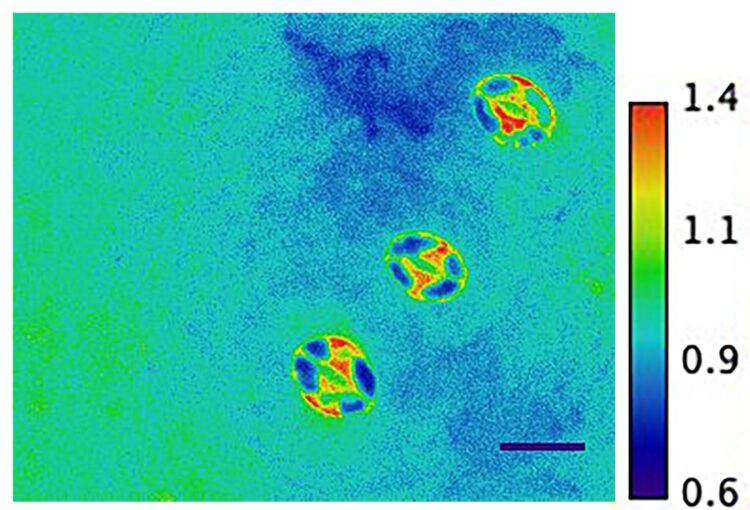Nanosensor allows unprecedented access to explore mechanisms related to drought

Credit: Schroeder Lab, UC San Diego
Plant biologists have long sought a deeper understanding of foundational processes involving kinases, enzymes that catalyze key biological activities in proteins. Analyzing the processes underlying kinases in plants takes on greater urgency in today’s environment increasingly altered by climate warming.
Certain “SnRK2” kinases (sucrose-non-fermenting-1-related protein kinase-2s) are essential since they are known to be activated in response to drought conditions, triggering the protective closure of small pores on leaf surfaces known as stoma. These pores allow carbon dioxide to enter leaves, but plants also lose more than 90 percent of their water by evaporation through them. Pore opening and closing functions help optimize growth and drought tolerance in response to changes in the environment.
Now, plant biologists at the University of California San Diego have developed a new nanosensor that allows researchers to monitor SnRK2 protein kinase activity in live plant cells. The SnRK2 activity sensor, or “SNACS,” is described in the journal eLife.
Prior efforts to dissect protein kinase activities involved a tedious process of grinding up plant tissues and measuring kinase activities through cell extracts. More than 100 leaves were required per experiment for analyses of the stomatal pore forming “guard cells.” SNACS now allows researchers to analyze changes in real time as they happen.
“Previously, it was not possible to investigate time-resolved SnRK2 activity in living plant cells,” said Biological Sciences Distinguished Professor Julian Schroeder, a member of the Section of Cell and Developmental Biology and senior author of the new paper. “The SNACS sensor reports direct real-time visualization of SnRK2 kinase activity in single live plant cells or tissues.”
The new biosensor is already paying dividends. The researchers describe using SNACS to provide new evidence about longstanding questions about SnRK2 and foundational interactions with carbon dioxide. The researchers show that abscisic acid, a drought stress hormone in plants, activates the kinases, but that elevated carbon dioxide does not, resolving a recently debated question.
“Our findings could benefit researchers investigating environmental stress responses in plants and analyzing how different signaling pathways interact with one another in plant cells,” said Yohei Takahashi, a UC San Diego project scientist and co-corresponding author of the study. “The ability to investigate time-resolved SnRK2 kinase regulation in live plants is of particular importance for understanding environmental stress responses of plant cells.”
The new nanosensor was developed using an approach pioneered by the late UC San Diego Professor Roger Tsien, in part for which he was awarded a Nobel Prize.
###
The research team included Li Zhang, Yohei Takahashi, Po-Kai Hsu, Kollist Hannes, Ebe Merilo, Patrick Krysan and Julian Schroeder.
Media Contact
Mario Aguilera
[email protected]
Original Source
https:/
Related Journal Article
http://dx.





